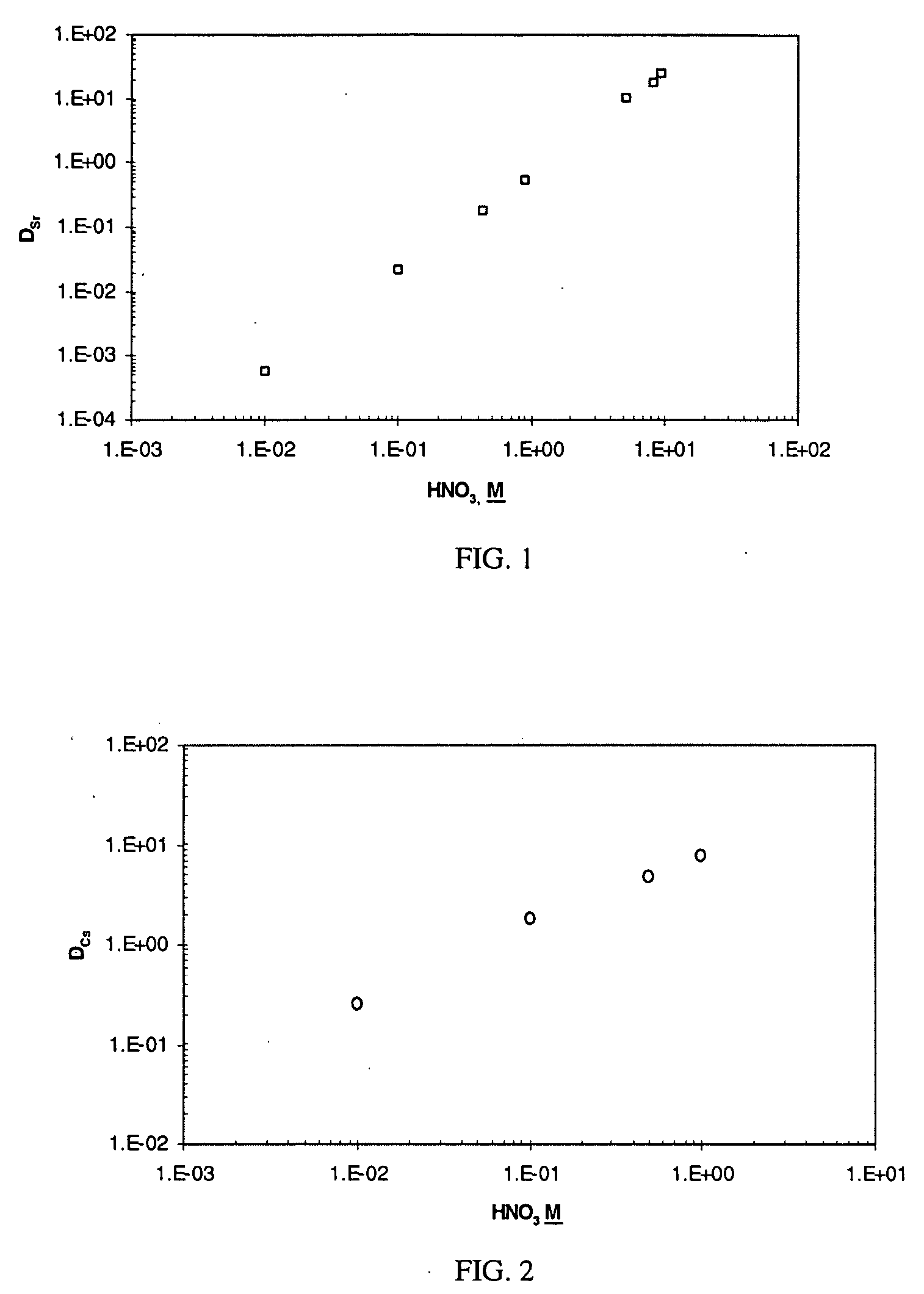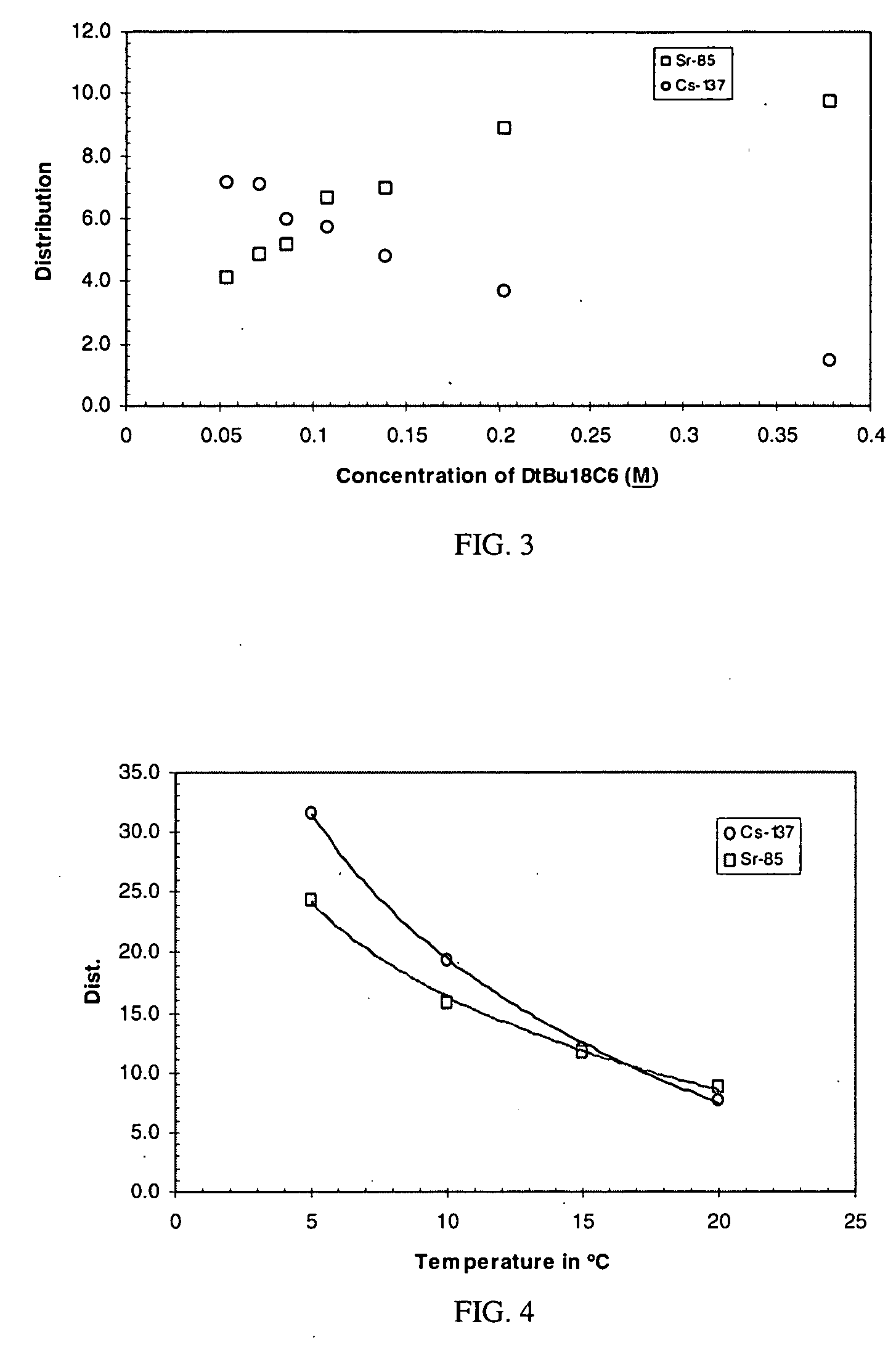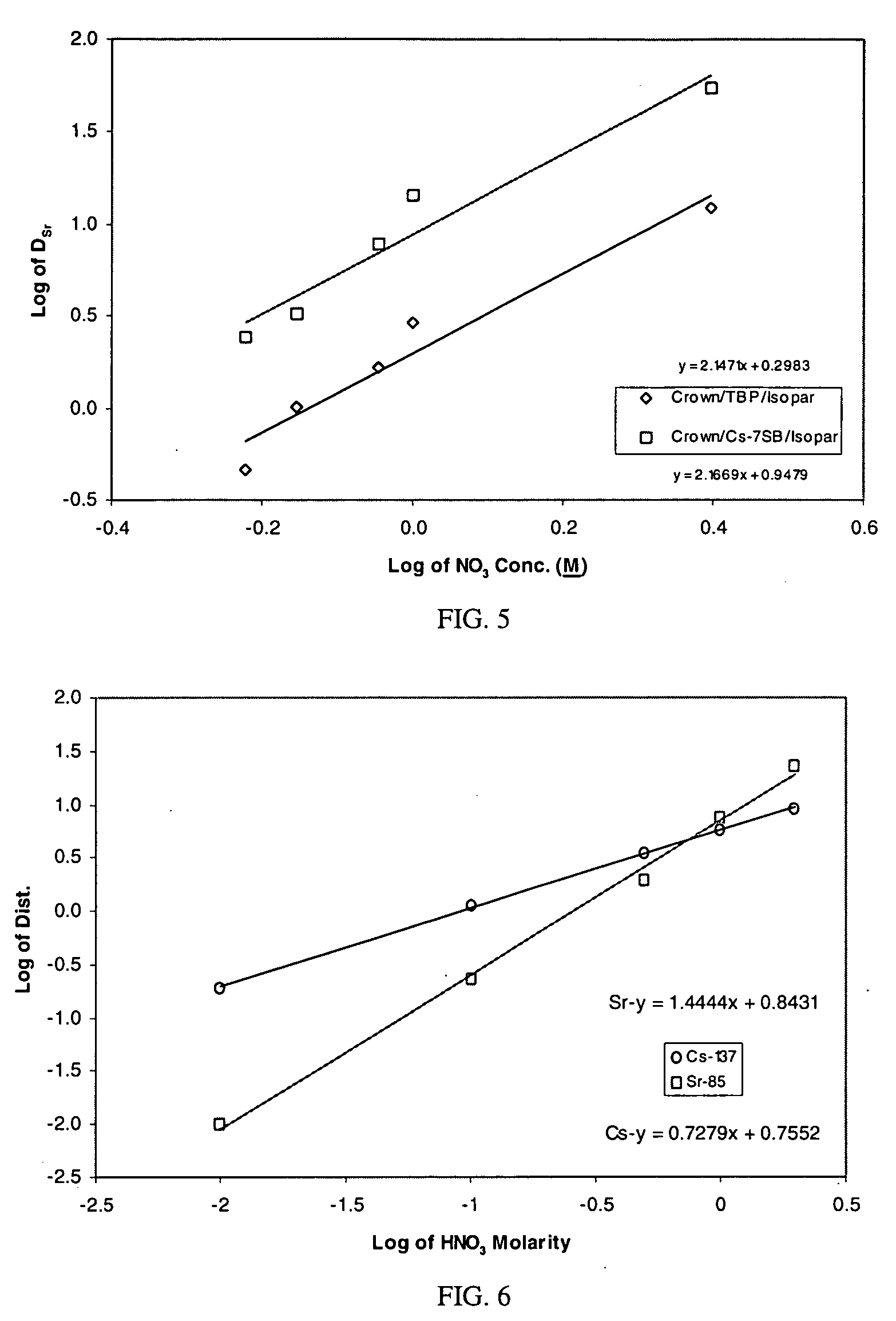Cesium and strontium extraction using a mixed extractant solvent including crown ether and calixarene extractants
- Summary
- Abstract
- Description
- Claims
- Application Information
AI Technical Summary
Benefits of technology
Problems solved by technology
Method used
Image
Examples
example 1
Coextraction of Cesium and Strontium
[0053] Neat DtBu18C6, the extractant used in the SREX solvent, was added in varying concentrations to the CSSX solvent. Unexpectedly, an increased forward distribution for strontium was observed. In fact, the DSr increased dramatically to 9.8 while the DCs remained approximately the same (DCs=8.0) as obtained with the CSSX solvent alone. To attain high distribution coefficients for both cesium and strontium, simultaneously, an optimum mixture for the DtBu18C6 and the BOBCalixC6 was found. A plot of the cesium and strontium distribution coefficients as a function of the ratios of DtBu18C6 to 0.007M BOBCalixC6 is shown in FIG. 3. Distribution coefficients for the cesium and strontium diverged at high and low concentrations of the DtBu18C6. However, favorable forward extraction of the cesium and strontium was obtained at DtBu18C6 concentrations ranging from 0.053M to 0.378M. The distribution coefficients were almost equal at DtBu18C6 concentrations ...
example 2
Extraction of Strontium with Cs-7SB
[0059] Tests conducted to determine the component responsible for the elevated strontium distributions indicated that the Cs-7SB modifier provided the increased strontium distribution. The forward distribution of strontium from 1M HNO3 solutions was increased from 0.7 at ambient temperature using SREX (DtBu18C6 and TBP in Isopar®L) to between 5 and 7 using a mixture of DtBu18C6, the Cs-7SB modifier, and the Isopar L ® diluent. As such, the Cs-7SB modifier provided a significant improvement over the SREX extractant for processes where selective strontium removal from acidic solutions is desired. While the positive effect of fluorinated modifiers is known for the extraction of cesium using crown ethers or calixarenes, these modifiers have not been used instead of TBP in the SREX solvent for enhancing strontium extraction.
example 3
Temperature Dependence of the Cesium / Strontium Extraction
[0060] When a second round of testing was performed to reproduce the data presented in FIG. 3, the ambient temperature had dropped from 24° C. to 20° C. At 20° C., the DSr from a 1M HNO3 solution was found to be higher, with a DSr of 11.3 instead of a DSr of 9.8 at 24° C. (as described in Example 1). Since high distribution ratios are desired, the increase in DSr with decreasing temperature was of interest since it has been noted in the literature that the forward distributions of cesium in BOBCalixC6 are similarly temperature dependent. To further elucidate the effect of temperature, temperature dependence tests were performed on the SREX solvent, the CSSX solvent, and the mixed extractant solvent. Tests performed at 10° C. showed that the DSr for the SREX solvent was 2.2 and the DCs for the CSSX solvent was 46.0. In contrast, the distribution ratios at 24° C. were lower, with a DSr of 0.70 and a DCs of 8.0. The temperature ...
PUM
| Property | Measurement | Unit |
|---|---|---|
| Temperature | aaaaa | aaaaa |
| Temperature | aaaaa | aaaaa |
| Temperature | aaaaa | aaaaa |
Abstract
Description
Claims
Application Information
 Login to View More
Login to View More - R&D
- Intellectual Property
- Life Sciences
- Materials
- Tech Scout
- Unparalleled Data Quality
- Higher Quality Content
- 60% Fewer Hallucinations
Browse by: Latest US Patents, China's latest patents, Technical Efficacy Thesaurus, Application Domain, Technology Topic, Popular Technical Reports.
© 2025 PatSnap. All rights reserved.Legal|Privacy policy|Modern Slavery Act Transparency Statement|Sitemap|About US| Contact US: help@patsnap.com



